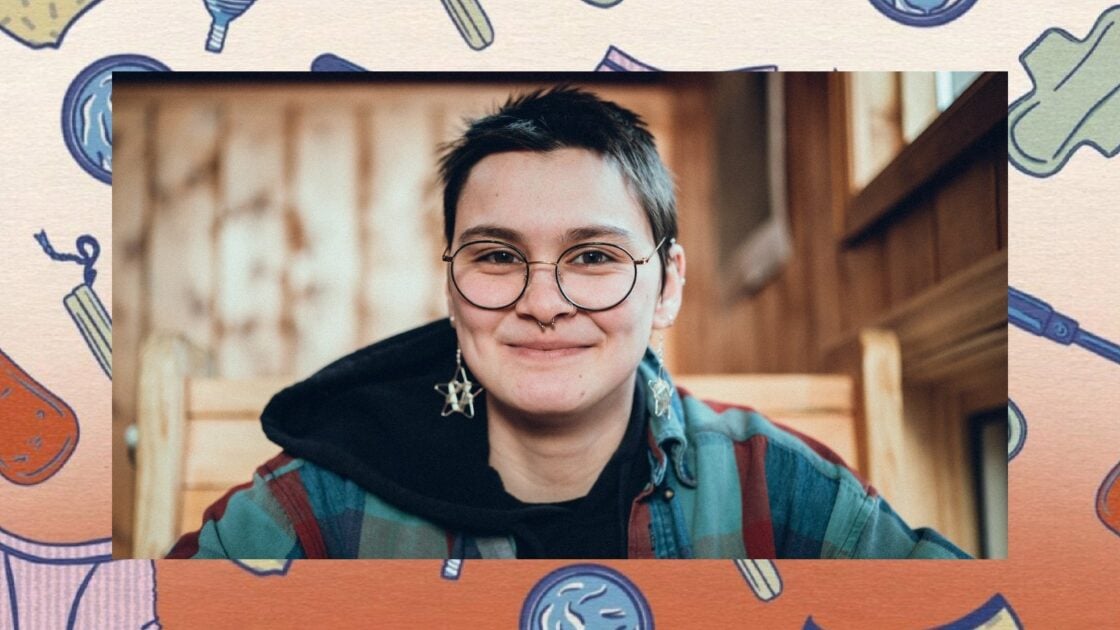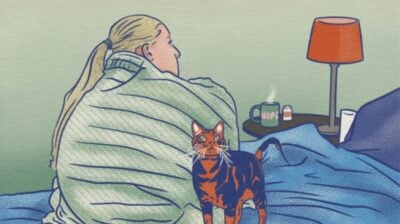Why period pain needs to be taken more seriously
This content contributor discusses their struggle with period pain and the lack of informed healthcare available for menstruation.

Having a period as a non-binary transgender person is an uncomfortable experience. It’s uncomfortable for everyone but it is extremely uncomfortable when a lot of the language around periods is still so heavily gendered. It is largely getting better though. Over the past few years, there has been much improvement in many period campaigns to be more inclusive. Such as finally switching from the blue goo to red to signify period blood in ad campaigns.
Trying different treatments for period pain
One thing I fear that is not getting better for anyone who menstruates is access to informed healthcare. I’ve been going to doctors since I was 15 about my period pain and have been dismissed each time. I have tried every form of birth control pill on the Irish market then the depo provera shot, which is a contraceptive injection.
I did this in an attempt to either shorten the length of my period so that I would not be in debilitating pain for 3 days every month, sometimes lasting up to 8 days. Or in the hopes that my period would not be quite as heavy. There are different outcomes for different people on the pill so there really is no guarantee I just knew for me personally I needed to find some solution.
Eventually, I was prescribed a painkiller called Ponstan for the pain but the underlying cause was never investigated. Each time I tried to renew my prescription I was treated like I was lying about the pain I was in. I eventually saw a gynaecologist when I was 17 and was told to try coming off hormonal birth control. At this time I was running out of options and I knew that an IUD was one of the only options left. So I came off of birth control to see if I had a regular enough period to be considered for an IUD. I did, so I made the appointment with my GP.
I did take some time to weigh up the benefits and downfalls of an IUD. However, I was really struggling with how distressing having a period was for me both emotionally and physically. In all fairness, I think my GP did her best with the guidance she has been given. She talked me through everything three times before the procedure, then again as she was doing it and used anatomical language in a non-gendered way. She followed all the guidelines that she has to and herein lies the problem: the guidelines say I will not be in any pain or if I am it will be minimal.
Getting an IUD for period pain
The pain I experienced during and after the procedure was so intolerable that I came close to passing out. I had to be left in the room for some time after because I was not steady enough to walk. Afterwards, the doctor walked me down the stairs because they were afraid I would fall.
This was in May and I kept the IUD for 9 months to see if it would be effective. Ultimately it just made things worse for me. I was in nonstop excruciating pain for 5 months and had my period for the entirety of the time.
I repeatedly visited the doctor to try and explain how difficult it was for me to do anything and was told to wait it out. My family did not really know what to do with me. My granny gave me her medication eventually because nothing else was helping the pain and my GP refused to prescribe me anything.
How hormone replacement therapy helped my period pain
After having the coil removed I started taking testosterone. I have had to do this privately and at great cost because of the long waiting lists for the National Gender Service. Even when I do attend I know the clinic does not follow international best practices.
Testosterone is the only thing that has ever helped lessen my symptoms and make my period more tolerable. This is a huge worry for me because it means if I was not medically transitioning I would still just be in excruciating pain every month and getting no answers. It also worries me on another level. Is this how people with chronic pain conditions are treated? Chronic pain conditions are more common in women and guess who is less likely to be prescribed painkillers by a doctor for pain relief? Also women.
How medical racism and sexism impact gynaecology
After my experience with my doctor, I do not really see the medical establishment the way I used to. I have taken feminism classes as part of my undergraduate degree and after my experience, I read up on the history of gynaecology. Medicine has a racism and sexism problem. Most of the textbooks and materials are based solely on the bodies of white people and usually white men. Most of our drugs are only tested on white men. The field of gynaecology was founded on the exploitation of Black women who were enslaved, in the cruel and racist belief that they felt no pain. So the basis of a lot of the understanding of gynaecology was written by racist white men who did not believe that Black women felt any pain. It is difficult to imagine that this has not had a lasting influence on modern medicine.
I have spoken to other people who have had an IUD or the coil. It differs from person to person but many also shared my experience of their pain either during or after the procedure not being believed.
Fighting for answers
Going forward, I intend to fight for myself and ask that some tests are done this time instead of accepting them telling me I’m fine. No one should be unable to get out of bed for days, or not able to eat or take care of themselves. I know my body and I intend to fight until I get some answers. My advice is to Trust yourself. I would much rather be overly cautious than miss something and I hope other people would do the same.
You deserve to be taken seriously and you deserve real help and answers.
Feeling overwhelmed and want to talk to someone?
- Get anonymous support 24/7 with our text message support service
- Connect with a trained volunteer who will listen to you, and help you to move forward feeling better
- Whatsapp us now or free-text SPUNOUT to 50808 to begin.
- Find out more about our text message support service
If you are a customer of the 48 or An Post network or cannot get through using the ‘50808’ short code please text HELLO to 086 1800 280 (standard message rates may apply). Some smaller networks do not support short codes like ‘50808’.






